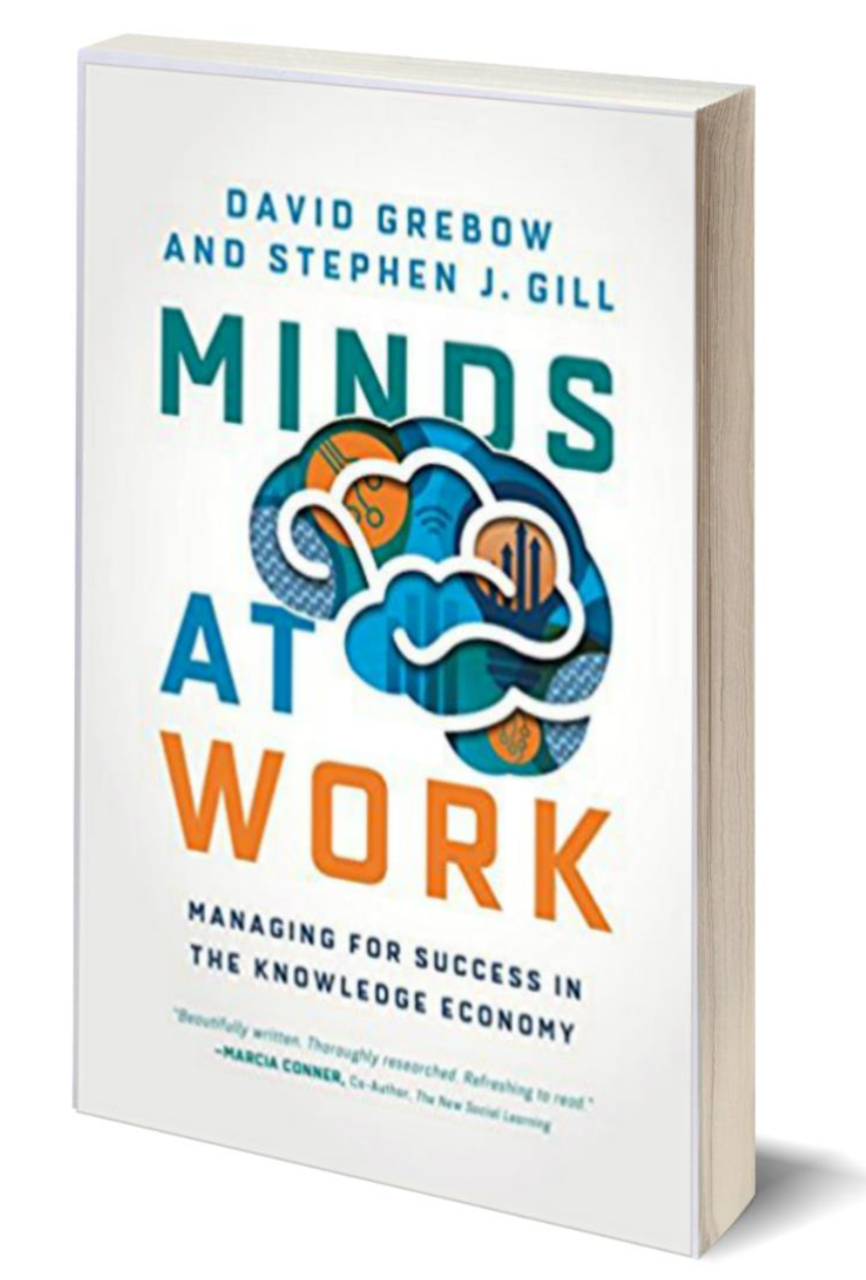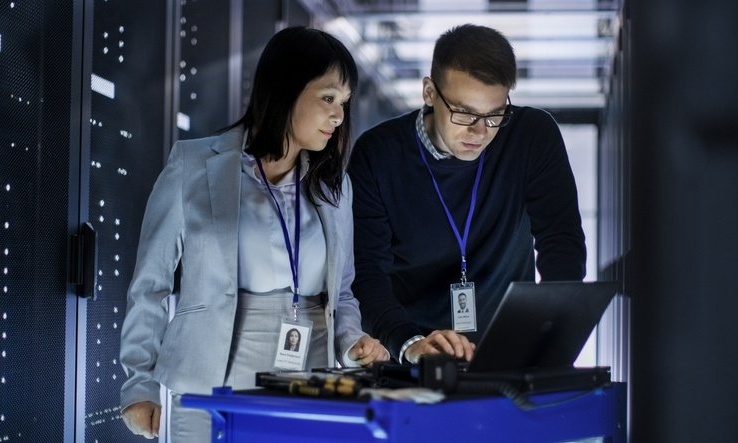From Guest Bloggers David Grebow and Stephen Gill
“When we look back across five centuries, the implications of the Renaissance appear to be obvious. It seems astonishing that no one saw where it was leading, anticipating what lay around the next bend in the road and over the horizon. Even the wisest were at a hopeless disadvantage, for their only guide in sorting it all out — the only guide anyone ever has — was the past, and precedents are worse than useless when facing something entirely new.”
—William Manchester, A World Lit Only By Fire

The U.S. Department of Labor estimates the loss of the relatively unskilled jobs that populated most of the labor-intensive economy would impact more than 1.4 million workers by 2026. Yet, a World Economic Report analysis and report in response to these numbers pointed out that 96% of the 1.4 million jobs could be easily upskilled and transitioned into more challenging and skilled work once automation and AI replaced the repetitive, labor-intensive parts of their jobs. For example, assembly line workers could become construction laborers, electronic equipment assemblers could transition into electricians, and machine operators would learn to be machine mechanics.
Labor-intensive work that can be more cheaply and effectively done by automation and AI has aspects and elements to it that AI and automation cannot do. It means that parts of many jobs are, to use a new term, “robot-proof.” They are the parts of a job that requires you to use your mind — life experiences, creativity, ability to continuously learn, and more — in the work you do. Harry Davis at the University of Chicago summed it up when he said, “We have to make it so that people don’t leave too much of themselves in the trunk of their car.”
Some countries have paid more attention to this historic shift than others and are doing a better job training and educating their workforces for these upskilling transitions. In Singapore, they have started what is referred to as a “Lifelong Learning Initiative.” The focus is on training and education for skills that will be required in a world that is mind-intensive and not labor-intensive, the brainful work that will need to be done in the future. In Germany, there is the Educational Vocation Act that offers 500,000 Germans with up to three years of education in the classroom that is then coupled with a transition into the workplace as paid on-the-job apprenticeships. These countries have a growth mindset and know that people want to learn and prepare for the future.
Some countries, such as the United States, are still not seeing the implications of The Great Inflection Point and have no strategy for succeeding in this new mind-intensive world. A few companies are leading by example. AT&T realized (almost too late) that their new competitors include not only the new cellular phone companies Verizon and Sprint, but also the internet service providers Amazon, Netflix and Google. Randall Stephenson, AT&T’s Chairman and Chief Executive, knew he had to reinvent the company to compete. So in 2014, he asked 280,000 employees worldwide to start a retraining program called Vision 2020. In his mind, it was an easy choice: Take classes and begin to upgrade your skills or limit your opportunities at AT&T to zero. The company knew that a large portion of the workforce needed to learn the new digital technology and quickly be able to work with AT&T’s cloud-based system, scheduled for implementation in 2020.
The World Economic Forum summed it up: “As the types of skills needed in the labor market change rapidly, individual workers will have to engage in lifelong learning if they are to achieve fulfilling and rewarding careers. For companies, reskilling and upskilling strategies will be critical if they are to find the talent they need and to contribute to socially responsible approaches to the future of work. For policymakers, reskilling and retraining the existing workforce are essential levers to fuel future economic growth, enhance societal resilience in the face of technological change and pave the way for future-ready education systems for the next generation of workers.”
History does not happen to someone else. It happens to all of us. The cost of not noticing when history happens is failing to react and falling behind other countries that have been paying attention.
About David Grebow and Stephen Gill


SAMC Guest Bloggers
We have a select number of guest bloggers whom we have invited to share their insights with our readers. They bring different perspectives on the challenges of change, innovation and opening new market space. Please enjoy their viewpoints and share them with others.
On The Brink podcast with David and Stephen
Take a listen to our On The Brink podcast with David and Stephen about the changes taking place all around us in the way people work. Today’s “knowledge worker” in a typical corporation is very different from the line worker in a plant, yet so many of our businesses have paid little attention to this significant shift in the labor force and what their response to it should be. Pretty important stuff. Don’t miss this!
Resources:
- David and Stephen’s book: “Minds at Work”
- David and Stephen’s website: www.mindsatwork.co
- My book: “On the Brink: A Fresh Lens to Take Your Business to New Heights”
- Simon Associates Management Consultants website
From Observation to Innovation,
Andi Simon, Ph.D.
Corporate Anthropologist | President
Simon Associates Management Consultants
Info@simonassociates.net
@simonandi
Don’t miss a single episode of our On The Brink podcast!
Subscribe now




